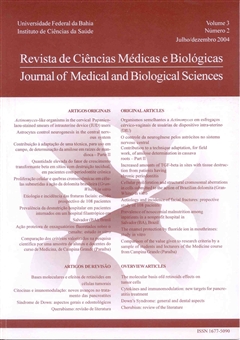The molecular basis and retinoids effects on tumor cells
DOI:
https://doi.org/10.9771/cmbio.v3i2.4428Keywords:
Retinoids, Cancer, Apoptosis, Cell differentiation, Chemotherapy.Abstract
The retinoids are a group of substances that regulates cellular growth and differentiation, which includes the trans-retinoic acid (ATRA), the 9-cis-retinoic acid (cRA), and natural or synthetic derivatives. They act via binding and activation of specific nuclear receptors (RARα, β,γ and RXRα, β,γ). These receptors belong to the nuclear steroid hormone receptor superfamily and act as ligand-dependent transcriptional regulators. Many studies have been revealed that retinoids are effective inhibitors of tumor cell growth in vitro and in vivo, and its tumor-suppressive activity has been established preclinically, and constitutes an alternative in potential for the treatment of many forms of cancer. Recent advances in understanding RARs and RXRs activation has led to a new generation of synthetic retinoids. These agents have been also found to be effective in suppressing growth and inducing apoptosis or differentiation in tumor cells.Downloads
Download data is not yet available.
Downloads
How to Cite
Costa, S. L. (2004). The molecular basis and retinoids effects on tumor cells. Journal of Medical and Biological Sciences, 3(2), 224–241. https://doi.org/10.9771/cmbio.v3i2.4428
Issue
Section
Review Articles
License
The Journal of Medical and Biological Sciences reserves all copyrights of published works, including translations, allowing, however, their subsequent reproduction as transcription, with proper citation of source, through the Creative Commons license. The periodical has free and free access.


